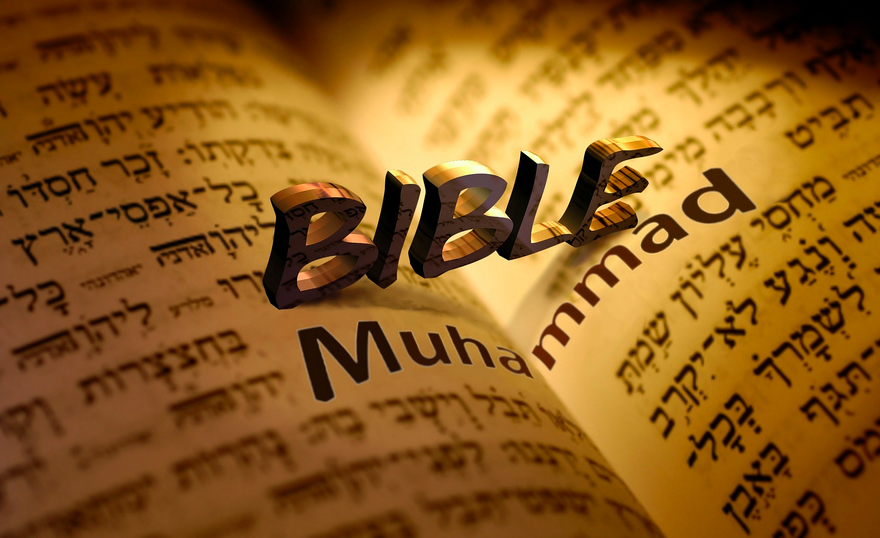Robert H. Gundry in his monumental work on the New Testament, has this to say concerning this verse:
The Jews had not understood that He was referring to His body under the figure of the temple. But knowing the witnesses had given conflicting testimony against Him, Jesus refused to be intimidated. Caiaphas then played his trump card by asking bluntly whether Jesus claimed to be the Messiah and the Son of God. Jesus affirmed that He was, but suggested that He was a different kind of Messiah from what Caiaphas had in mind. The blasphemy probably did not consist in the messianic claim alone — the Jews apparently believed history would prove the truth or falsity of a claim to messiahship–but in the further claim to be the Son of God in spite of his seeming lack of divine power at the moment. Caiaphas’s rending his garment signified horror at heaving heard blasphemy.
Robert. H. Gundry, A Survey of the New Testament [Zondervan Publishing House, 1970], p. 188
Interestingly, this verse in itself is very problematic for the Muslims, how can they appeal to this verse to discredit the Sonship of Jesus Christ, when in fact, it also speaks of his deity as well. The verse Jesus alluded to in the book of Daniel 7 is about the Son of man who receives worships, something an ordinary prophet would not lay a claim to.
Just before we look at the word “Blessed” and the context this was used, let us consider the action of the High Priest briefly. We were told the High Priest tore his garments and accused Jesus of blasphemy, we read in verse 63 and 64 of the same chapter;
Then the high priest rent his clothes, and saith, What need we any further witnesses?
Ye have heard the blasphemy: what think ye? And they all condemned him to be guilty of death.
Please note the tearing of the garment by the High Priest, let us ask ourselves this question, why would the High Priest had to tear his clothes on the account of the fact that Jesus proclaimed himself to be the Son of Mary? Why on earth would that be considered a blasphemy? Are we to argue that the High Priest was not aware that Jesus is the Son of Mary when this actually common knowledge among the people? So, in essence, why is he asking Jesus if he was indeed the Son of Mary since Mary was the one considered to be the Blessed? This does not make an iota of sense, in anyway, shape or form.
in fact, during his ministrations, Mary the mother of Jesus has been referred to several times at one point or the other, a case study was when Jesus was ministering in a house and he was told that his “Mother and Brother” want to see him, we read of this in Matthew 12:47;
Then one said unto him, Behold, thy mother and thy brethren stand without, desiring to speak with thee.
So, we see that the idea of Mary being the blessed was a common knowledge and the High Priest would not have seen that as a blasphemy from the part of Jesus. Now, we need to ask, whats the reason the High Priest tore his clothes when Jesus answered him? Here is why a little bit of Jewish culture and traditions could have been of help to Muslims and their Scholars on this matter. The tearing of clothes in the Jewish custom is actually an expression, an a common one at that, this is done sometimes as an expression of deep grief, or sometimes of a holy zeal. This happens over and over again.
We see practically an example of this when Eliakim, Shebna and Joah tore their clothes because of the news they received from Rabshakeh, we read in 2 Kings 18:37
Then came Eliakim the son of Hilkiah, which was over the household, and Shebna the scribe, and Joah the son of Asaph the recorder, to Hezekiah with their clothes rent, and told him the words of Rabshakeh.
To show that this is indeed common place within the Jewish culture, King Hezekiah upon hearing the news also tore his clothes, we read of this in verse 1 of 2 King 19;
And it came to pass, when king Hezekiah heard it, that he rent his clothes, and covered himself with sackcloth, and went into the house of the LORD.
Here are just few examples of how the Jews express their feelings, and an understanding of this gives more sense of the action of the embittered High Priest who accused Jesus of blasphemy! Would he have tore his clothes and get mad at Jesus just because he was calling himself the son of Mary?
If the Muslims are indeed interested in knowing what indeed this meant, even though it is painfully obvious, Matthew account of this should have been a refutation to such idea and alien thought of Mary being the Blessed the verse was refering to, here is Matthew record of the same words, but this time, the Blessed was actually referenced, we read in Matthew 26:63;
But Jesus held his peace. And the high priest answered and said unto him, I adjure thee by the living God, that thou tell us whether thou be the Christ, the Son of God.
Now, what this clearly tells us is that, the Jews who were with Jesus and the High Priest who were saying this knew exactly what they were saying and couldn’t have mistake the Blessed one whom they referred to as God for Mary, the Mother of Jesus. Of course, another argument a Muslim might want to make at this point is that, Matthew has corrupted his presentation and developed his own story further, that is only a desperate attempt not to allow the scriptures to speak for itself.
F.F. Bruce, another New Testament Scholar, explains in his book, how that the response of Jesus is well understood by the Jews of his days and there is no way it can be misconstrued in anyway;
Then the high priest, apparently on his own initiative, asked Jesus to tell the court of he was the Messiah, the Son of God. (He used ‘the Blessed’ as a substitute for the divine name)
F. F. Bruce, The Hard Sayings of Jesus, [Hodder and Stougthton, 1998], p. 245
Some Christians who are not familiar with this Islamic argument might ask, what exactly is the reason behind the Muslim’s conclusion that Mary was the one referred to in the verse. There are primarily two important reasons:
a. Mary was called Blessed before Jesus was born
b. A denial of the Sonship of Jesus.
I do like to deal with the second reason briefly before examining the first one. In Islamic theology, Allah is above having a Son, Allah is mighty and transcend that such thing as ascribing a Son to him is nothing but blasphemy and a disgrace to his majesty. Over and over again in the pages of the Qur’an, Allah told Muhammad how grievous a sin it is to ascribe a Son to him. In other to show how grave this is, anyone who calls Jesus the Son of God is liable to be punished in Hell. Moreover, in one of the most often repeated chapter of the Qur’an, Surah Ikhlas, Allah told the Muslims that he “begot not, neither was he begotten” as a constant reminders for all the Muslims and every other person at large.
So, in short, the basis of the Muslims for denying that Jesus is the Son of God is purely theological, since Allah has condemned it, then it has to be condemned without understanding what the Christian meant when they say this. It is important to note at this point at, the Allah of the Qur’an thinks the Christians when talking about the Son of God refers to a sexual relationship, this is far from what the Christians believed and what the Bible taught as well.
The second reason why the Muslims claim Mary is the blessed is because she was called “Blessed” before Jesus was born. We read in Luke 1:28;
And the Angel came in unto her; and said, Hail, thou that art highly favoured, the Lord is with thee: blessed are thou among women.
Some do quote verse 48 as a support for this as well;
For He hath regarded the low estate of his handmaid; for, behold, from henceforth all generations shall call me blessed.
These very verses form the basis of the conclusion that Mary was the Blessed spoken about when Jesus was facing trail, as we have seen so far, this is far from the truth, but we shall explore this the more as there are a couple of problem with this. Mary was not the only one called “Blessed” in the scripture, in fact Jesus called some of his listeners blessed are well. When you read the sermon on the mount, commonly called the Beatitudes, you will see people being called “Blessed” several times, here is just an example:
“Blessed are the poor in spirit: for theirs is the Kingdom of heaven” – Matt 5:3
And guess what? Peter was called “Blessed” as well, In fact, the Ustaz also quoted this verse during his presentation, but how he did not notice this is still a wonder, here is the verse:
“And Jesus answered and said unto him, Blessed are thou, Simon Barjona: for the flesh and blood hath not revealed it unto thee, but my Father which is in heaven” – Matt 16:71
To make the matter worst, Jesus was also called Blessed! We read what people said when he was entering Jerusalem, commonly called the triumphant entry:
And the multitudes that went before, and that followed, cried, saying Hosanna to the son of David: Blessed is He that cometh in the name of the Lord; Hosanna in the highest.
From the foregoing verses, if we are to go by the methodology the Muslims apply to the scriptures, then we can also conclude that, Jesus’ listeners, Peter and even Jesus fits into this category! How absurd. This is clearly not how to interpret the scriptures, it is not exegesis, but rather, eisegesis. Without going into all these details, verse 42 of the same verse the Muslim appeal to also had called being called “blessed” as well.
And she spake out with a loud voice, and said, Blessed are thou among women, and blessed is the fruit of thy womb.
How do we know the verse is talking about the God? Very simple, when Jesus said this, the religious leaders got angry and said he has blaspheme! Calling himself the Son of God is one of those things the Jews wanted to stone him for, because they believe by doing so, he is equating himself with the Father, therefore claiming to be God.
Henry H. Halley in his commentary on this verse finely sums this up;
..This was the main Jewish trial. They condemned him on the charge of Blasphemy, from his own acknowledgement that he was the son of God..
Henry H. Halley, Halley’s Bible Handbook, [Zondervan Publishing House, 1965], p. 480
As we have seen, the very scripture the Muslims do try to use in showing that Jesus is just human and nothing more, is the very same scripture that not only portray him as the Messiah, but as the Son of Man who receives worship and judge men. We hope this has been helpful for the Muslims in understanding the theology of the Christians and scriptures as well, and also a helpful tips for the Christians who are willing to respond to their Muslim friends on a matter like this.



